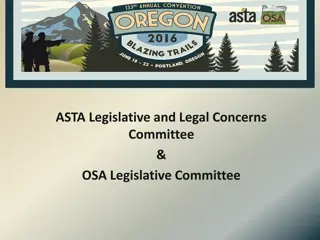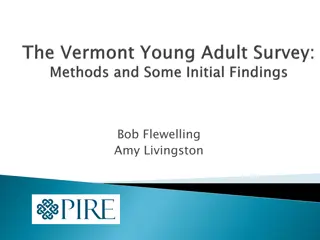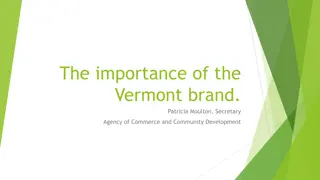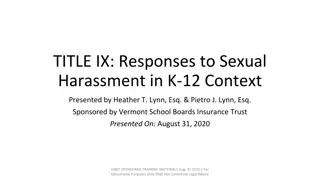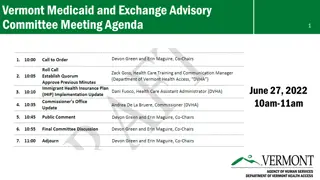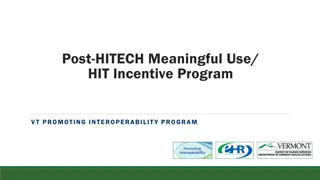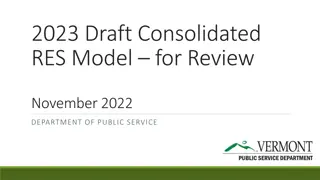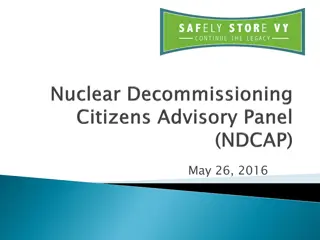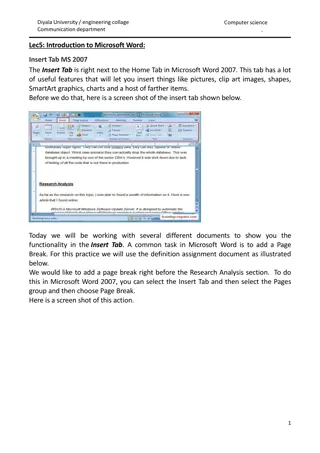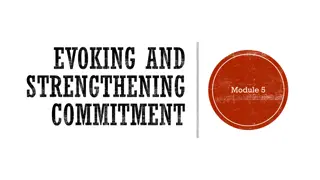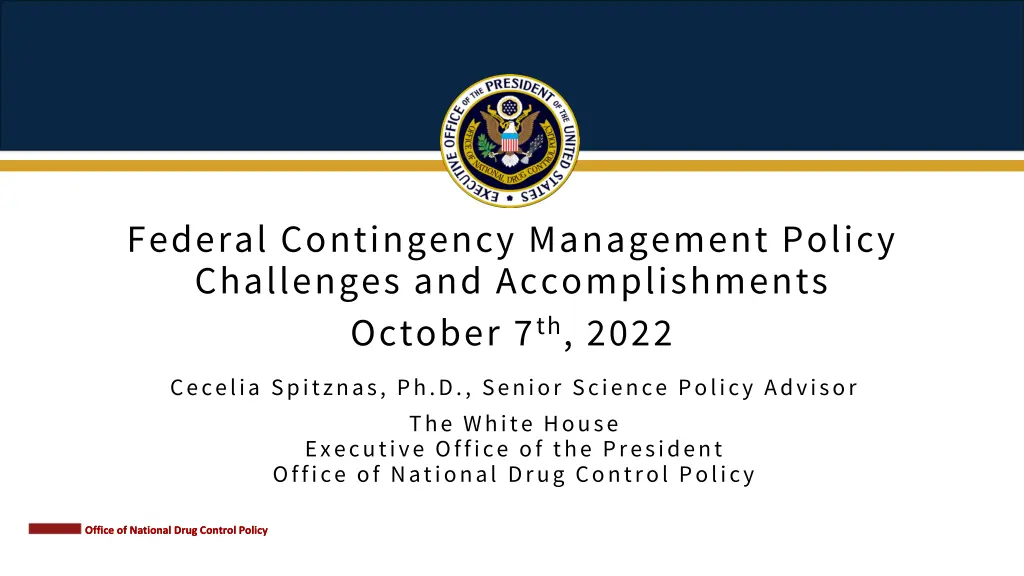
Federal Contingency Management Policy Challenges and Accomplishments
Explore insights on federal contingency management policy challenges and accomplishments as discussed by Cecelia Spitznas, Ph.D., Senior Science Policy Advisor from the Office of National Drug Control Policy. Learn about ONDCP's initiatives, interagency actions, and the justification for an interagency process on contingency management for treating stimulant use disorder. Dive into the ONDCP Methamphetamine Plan Treatment Action Item and cross-department policy issues related to treating stimulant use disorder with contingency management.
Download Presentation

Please find below an Image/Link to download the presentation.
The content on the website is provided AS IS for your information and personal use only. It may not be sold, licensed, or shared on other websites without obtaining consent from the author. If you encounter any issues during the download, it is possible that the publisher has removed the file from their server.
You are allowed to download the files provided on this website for personal or commercial use, subject to the condition that they are used lawfully. All files are the property of their respective owners.
The content on the website is provided AS IS for your information and personal use only. It may not be sold, licensed, or shared on other websites without obtaining consent from the author.
E N D
Presentation Transcript
Federal Contingency Management Policy Challenges and Accomplishments October 7th, 2022 Cecelia Spitznas, Ph.D., Senior Science Policy Advisor The White House Executive Office of the President Office of National Drug Control Policy Office of National Drug Control Policy Office of National Drug Control Policy
Official Agency Actions ONDCP calls for expansion of the treatment, Contingency Management , or CM in three documents cleared through the interagency The ONDCP First Year Priorities: ONDCP is Congressionally required to publish this its first year within 90 days The National Drug Control Strategy: Congress requires ONDCP to publish this in the second year of an administration The ONDCP Methamphetamine Plan: ONDCP published this document in partial response to the Methamphetamine Act of 2021 signed into law by the President on March 14th of 2022 Office of National Drug Control Policy Office of National Drug Control Policy
Justification for an Interagency Process on CM ONDCP, HHS and the VA recognize that this therapy is one of the best treatments available for treating stimulant use disorder (cocaine and methamphetamine) Lack of an FDA approved medication to treat stimulant use disorder so CM for this condition is a priority Office of National Drug Control Policy Office of National Drug Control Policy
Methamphetamine Plan Treatment Action Item Of Interest ONDCP is leading an interagency process to address policy barriers that ONDCP staff and others across the interagency have identified that prevent successful implementation of contingency management for appropriate addiction treatment, including consideration of issues related to reimbursement, authority, digital therapeutics, grant funding limits, and legal liability and fraud (DoD, , DOJ, HHS, ONDCP, VA& Treasury) Office of National Drug Control Policy Office of National Drug Control Policy
Cross-Department Policy Issues Treating Stimulant Use Disorder with CM ONDCP workgroup involves drug budget agencies Treasury started a workgroup to consider tax/income issues All income is taxable Income over $599.00 requires reporting using a 1099-MISC form for miscellaneous income by businesses (e.g., clinics) which may reduce a clinic s willingness to participate in CM protocols Federal Anti-Kickback Statute Office of National Drug Control Policy Office of National Drug Control Policy
Outstanding Policy Issues Treating Stimulant Use Disorder with CM HHS actions: HHS workgroup focuses on issues like reimbursement, agency authority (does CMS have the authority to fund CM programming?) and incentive magnitude California Section 1115 Demonstration (1115 Waiver) approved Office of the Inspector General (OIG) Advisory Opinion No. 22-04 https://oig.hhs.gov/documents/advisory-opinions/1024/AO-22-04.pdf Office of National Drug Control Policy Office of National Drug Control Policy
The Elephant in the Room CM is not yet scaled up and faces a challenge in the court of public opinion People in the CM space understand that offering incentives is a way to encourage new behaviors, but newcomers to the issue may see this as offering benefits to people who should not be using drugs in the first place Dr. DePhilippis told me that even in the V.A., some people have difficulty with the idea of paying drug users. But there are other reasons the idea hasn t taken off. The New York Times Office of National Drug Control Policy Office of National Drug Control Policy
Stakeholder Messaging Ideas Messaging to address the controversy Personal stories from counselors & patients Blending Initiative from the the Clinical Trials Network Support from well-known authorities (e.g., Dr. Nora Volkow) Make examples of other acceptable incentive structures (e.g., employment bonuses, commissions and taxes) Raise awareness of Resistance to incentives as an example of stigma against people with the disease of addiction Increasing the number of people in recovery benefits society Office of National Drug Control Policy Office of National Drug Control Policy
Long-Standing Support for Future Investments in CM Personal stories From patients: It made me more accountable and responsible. I was missing a lot of groups and now I m up to 90% attended. I don t want to mess up my streak now! To grow my self-esteem back to where I was someone who could look in the mirror, who could actually be there when I said I was going to be there, for myself and for other people. From healthcare providers: The clients are more engaged Now they are out in the community, reconnecting with family, going to the gym, and multiple AA/NA meetings a week. Office of National Drug Control Policy Office of National Drug Control Policy
Risks/Challenges with Implementation If programs fail to implement CM interventions faithfully, CM as a therapy will not fulfill its promise and patients will not benefit Stakeholders may consider Quality Assurance methods to ensure that programs select proven targets, magnitudes and reinforcement schedules Expert involvement/experience implementers to assist with new program development is essential E.g., Motivational Interviewing Network of Trainers or a certificate program may provide additional reinforcement Office of National Drug Control Policy Office of National Drug Control Policy
Questions? Contact me: Cecelia_M_Spitznas@ondcp.eop.gov whitehouse.gov/ondcp Office of National Drug Control Policy Office of National Drug Control Policy


